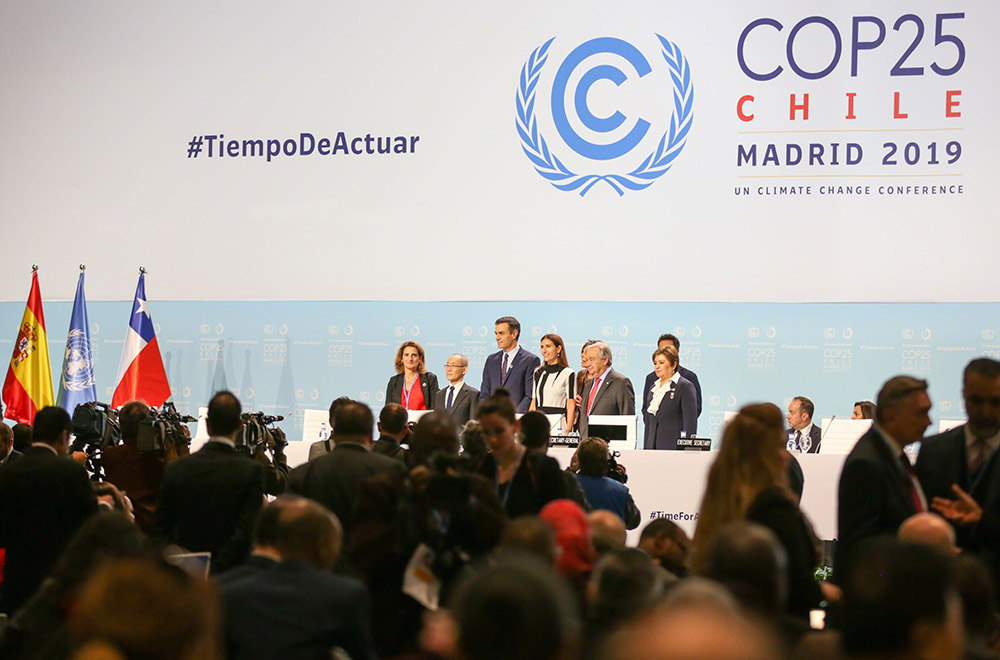Summary

The Chile/Madrid Climate Change Conference opened under the glare of camera lenses and flashes: the fast-paced atmosphere inevitably created when Heads of State and Government arrive. Roughly 50 world leaders gathered to hear UN Secretary-General António Guterres somberly declare that the “point of no return is in sight.”
As these dignitaries shared experiences on raising climate ambition in their countries, many emphasized that enhanced action is a moral imperative. Notably, several speakers spoke of a “climate crisis” and paid tribute to youth movements for holding decision makers accountable for increasing ambition. Another message that resonated across statements was the need to support the most vulnerable, with the Dominican Republic emphasizing the importance of public services, especially regarding education and health, and Luxembourg announcing national plans to make public transportation free for all. The EU highlighted its plan to become the first climate neutral continent by 2050.
COP 25 President Carolina Schmidt, Chile, underscored the need to reinvigorate multilateralism and ensure that negotiations spur the just and inclusive transition which is urgently needed to address the reality of vulnerable communities around the world.
Throughout the day, delegates met in plenary to launch the work of all five UNFCCC bodies. Much of the morning involved discussions on the agendas of the Conference of the Parties (COP) and Conference of the Parties serving as the meeting of the Parties to the Paris Agreement (CMA). Various parties and groups had proposed several new agenda items. Some of the items to be taken forward include:
- Privileges and immunities to the Green Climate Fund (GCF) will be considered with other GCF-related issues on the COP agenda;
- The special needs and circumstances of African and Latin American countries will not be on the CMA agenda, but the special circumstances of Africa will be discussed informally; and
- The report of the Adaptation Committee will be added to the CMA agenda, and parties will discuss the global goal on adaptation in an informal meeting.
Some delegates worried if the disagreements over the agendas, and the means to resolve some of them, had eroded trust among negotiators. Others disagreed and looked forward to a more “normal” pace of work tomorrow.
For more details on the day’s negotiations and to hear what delegates said in the corridors, see our daily Earth Negotiations Bulletin (ENB).

